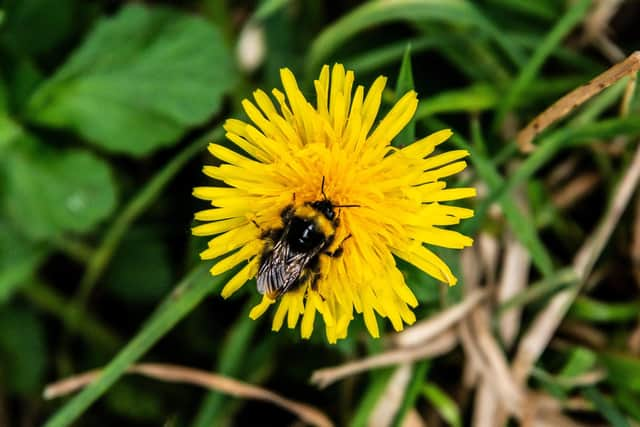Why Alan Titchmarsh is wrong when it comes to rewilded gardens - Yorkshire Post Letters
I read with a little more interest than most readers, as this is my career and I enter my 51st year in horticulture, the comments of respected gardener Yorkshire born, Alan Titchmarsh and Senior RHS judge Jim Buttress to the House of Lords Horticulture select committee about the values of rewilding in domestic gardens (The Yorkshire Post, July 31, 2023).
I do take issue with Alan's comments about letting people's manicured lawns run riot and turning them into a 'wild micro meadow', which is of value all year round depending on what the mix of plants are.
Advertisement
Hide AdAdvertisement
Hide AdBy planting cultivated varieties of herbaceous perennials like Echinacea, Rudbeckia, Yarrow and the fragrance of Phlox will, if deadheaded, often produce a second or third flush of flowers providing a nectar source for insects.


But do leave some seed heads for the birds to survive during the winter months.
There are plants such as Winter Sweet (Saroccoca) which produces a pungent fragrance and beautiful flowers in December and January, and Saxifrage and Iberis which are early to flower attracting hovering insects.
Flowering bulbs, like autumn flowering crocuses, early flowering Narcissus 'February Gold' provide a food source and flowers in the depths of winter
Advertisement
Hide AdAdvertisement
Hide AdMilder conditions due to climate change, in November and December means that some varieties of roses will flower until the end of December each year.
Any plant which produces pollen and nectar will attract insects to pollinate the flowers.
Nature is quick to adapt to human intervention with the environment, and it won't be claustrophobic and there won't be more straw and hay.
The vast range of flowering plants available will provide a show of nectar producing flowers all year round and with some gardeners having 'insect hotels' to provide shelter for when the weather is really bad then the picture painted by Alan Titchmarsh is not as dull as he portrays.
Advertisement
Hide AdAdvertisement
Hide AdWhat is of greater concern to me as a professional gardener is compost purchased from garden centres, or given away by councils, which started in brown bins containing composted waste from domestic gardens.
The replacement of peat with amongst other materials, garden waste is challenging for gardeners.
Those gardeners who want the perfect lawn treat themselves or employ a contractor to spray a cocktail of toxic chemicals to control weeds and fungus.
The residue of these chemicals which are not broken down in the composting cycle will affect the growth of younger plants.
